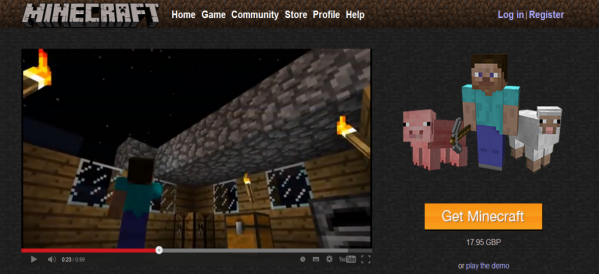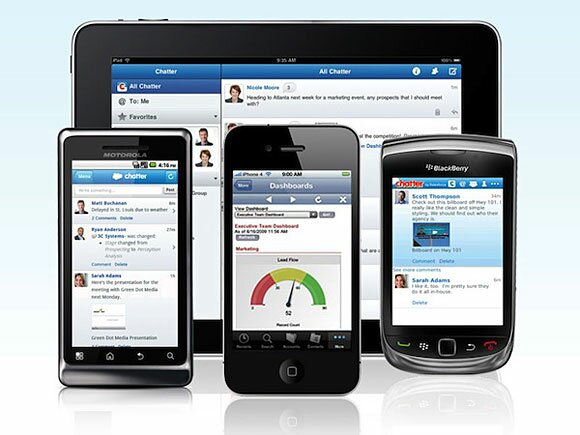Telco 2.0™ Research
The Future Of Telecoms And How To Get There
The Future Of Telecoms And How To Get There
|
Summary: Much of what we need to know, do or get, can now be delivered through software, pretty much at any place at any time via mobile. It is a key tool, and how we use it increasingly shapes our lives, businesses, work and identities. Why are telcos missing out, and what do businesses of all types need to do about it? (March 2014, Executive Briefing Service) |
|
Below is an extract from this 14 page Telco 2.0 Report that can be downloaded in full in PDF format by members of the Telco 2.0 Executive Briefing service here. We’ll also be exploring how mobile can transform and re-engineer marketing and customer interactions in the Mobile and Digital Commerce and Customer Experience sessions, and how it can transform organisations at the Agility through Enterprise Mobility and Cloud session, at our 2014 EMEA OnFuture Brainstorm, June 11-12, London. To find out more about any of these services please email / call +44 (0) 207 247 5003.
To share this article easily, please click:
Our knowledge, employment opportunities, work itself, healthcare, potential partners, purchases from properties to groceries, and much else can now be delivered or managed via software and mobile apps.
So are we all becoming increasingly ‘Software Defined’? It’s a question that has been stimulated in part by producing research on ‘Software Defined Networks (SDN): A Potential Game Changer’ and Enterprise Mobility, this video from McKinsey and Eric Schmidt, Google’s Exec Chairman, a number of observations throughout the past year, and particularly at this and last year’s Mobile World Congress (MWC).
The rapid adoption of smartphones and tablets, enabled by ever faster networks, is perhaps the most visible and tangible phenomenon in the market. Less visible but equally significant is the huge growth in ‘big data’ - the use of massive computing power to process types and volume of data that were previously inaccessible, as well as ‘small data’ – the increasing use of more personalised datasets.
However, what is now fuelling these trends is that many core life and business tools are now software of some form or another. In other words, programmes and ‘apps’ that create economic value, utility, fun or efficiency. Software is now the driving force, and the evolving data and hardware are by-products and enablers of the applications respectively.
In effect, mobile software is the latest great tool in humanity’s evolutionary path. With nearly a quarter of the world’s population using a smartphone, the human race has never had so much computing power by its side in every moment of everyday life. Many feature phones also possess significant processing power, and the extraordinary reach of mobile can now deliver highly innovative solutions like mobile money transfer even in markets with relatively underdeveloped financial service infrastructure.
How we are educated, employed and cared for are all starting to change with the growing power of mobile technologies, and will all change further and with increasing pace in the next phase of the mobile revolution. Knowing how to get the best from this world is now a key life skill.
The way that software is used is changing and will change further. While mobile apps have become a mainstream consumer phenomenon in many markets in the last few years, the application of mobile, personalised technologies is also changing education, health, employment, and the very fabric of our social lives. For example:
Horace Dediu pointed out at a previous Brainstorm that the disruptive jumps in mobile handset technology have come from changes in the user interface – most recently in the touch-screen revolution accompanying smartphones and tablets.
And the way in which we interact with the software will continue to evolve, from the touch screens of smartphones, through voice activation, gesture recognition, retina tracking, on-body devices like watches, in-body sensors in the blood and digestive system, and even potentially by monitoring brainwaves, as illustrated in the demonstration from Samsung labs shown in Figure 1.
Source: Samsung Labs
Clearly, some of these techniques are still at an early stage of development. It is a hard call as to which will be the one to trigger the next major wave of innovation (e.g. see Facebook's acquisition of Oculus Rift), as there are so many factors that influence the likely take-up of new technologies, from price through user experience to social acceptance.
Interactive goggles / glasses such as Google Glass have now been around for over a year, and AR applications that overlay information from the virtual world onto images of the real world continue to evolve.
Search is also becoming a visual science – innovations such as Cortexica, recognise everyday objects (cereal packets, cars, signs, advertisements, stills from a film, etc.) and return information on how and where you can buy the related items. While it works from a smartphone today, it makes it possible to imagine a world where you open the kitchen cupboard and tell your glasses what items you want to re-order.
Screens will be in increasing abundance, able to interact with passers-by on the street or with you in your home or car. What will be on these screens could be anything that is on any of your existing screens or more – communication, information, entertainment, advertising – whatever the world can imagine.
But is it really possible to define a person by the software they use? There is certainly an ‘a priori’ segmentation originating from device makers’ segmentation and positioning:
From a research perspective, there are many other approaches to thinking about what defines different types of user. For example:
It is tempting to hypothesise that there could be meta-segments combining these and other behavioural distinctions (e.g. you might theorise that there would be more ‘haters’ among the ‘laggards’ and the ‘paranoids’ than the ‘innovators’ and ‘pragmatics’), and there may indeed be underlying psychological drivers such as extraversion that drive people to use certain applications (e.g. personal communications) more.
However, other than anecdotal observations, we don’t currently have the data to explore or prove this. This knowledge may of course exist within the research and insight departments of major players and we’d welcome any insight that our partners and readers can contribute (please email if so).
The collection of apps and software each person uses, and how they use them, could be seen as a software fingerprint – a unique combination of tools showing interests, activities and preferences.
Human beings are complex creatures, and it may be a stretch to say a person could truly be defined by the software they use. However, there is a degree of cause and effect with software. Once you have the ability to use it, it changes what you can achieve. So while the software you use may not totally define you, it will play an increasing role in shaping you, and may ultimately form a distinctive part of your identity.
For example, Minecraft is a phenomenally successful and addictive game. If you haven’t seen it, imagine interactive digital Lego (or watch the intro video here). Children and adults all over the world play on it, make YouTube films about their creations, and share knowledge and stories from it as with any game.
To be really good at it, and to add enhanced features, players install ‘mods’ – essentially software upgrades, requiring the use of quite sophisticated codes and procedures, and the understanding of numerous file types and locations. So through this one game, ten year old kids are developing creative, social and IT skills, as well as exploring and creating new identities for themselves.

Source: Planetminecraft.com
There are also two broad schools of thought in advanced IT design. One is that IT should augment human abilities and its application should always be controlled by its users. The other is the idea that IT can assist people by providing recommendations and suggestions that are outside the control of the user. An example of this second approach is Google showing you targeted ads based on your search history.
Being properly aware of this will become increasingly important to individuals’ freedom from unrecognised manipulation. Just as knowing that embarrassing photos on Facebook will be seen by prospective employers, knowing who’s pulling your data strings will be an increasingly important to controlling one’s own destiny in the future.
Many of the opportunities and abilities conferred by software seem perhaps trivial or entertaining. But some will ultimately confer advantages on their users over those who do not possess the extra information, gain those extra moments, or learn that extra winning idea. The questions are: which will you use well; and which will you enable others to use? The answer to the first may reflect your personal success, and the second that of your business.
So while it used to be that your genetics, parents, and education most strongly steered your path, now how you take advantage of the increasingly mobile cyber-world will be a key additional competitive asset. It’s increasingly what you use and how you use it (as well as who you know, of course) that will count.
And for businesses, competing in an ever more resource constrained world, the effective use of software to track and manage activities and assets, and give insight to underlying trends and ways to improve performance, is an increasingly critical competence. Importantly for telcos and other ICT providers, it’s one that is enabled and enhanced by cloud, big data, and mobile.
The Software as a Service (SaaS) application Salesforce is an excellent case in point. It can brings instantaneous data on customers and business operations to managers’ and employees’ fingertips to any device. This can confer huge advantages over businesses without such capabilities.

Source: Powerbrokersoftware.com
To read the note in full, including the following additional analysis...
...and the following figures...
...Members of the Telco 2.0 Executive Briefing Subscription Service can download the full 14 page report in PDF format here. Non-Members, please subscribe here. For other enquiries, please email / call +44 (0) 207 247 5003.
Technologies and industry terms referenced include: software defined, customer experience, strategy, mobile, business model, Samsung, Minecraft, GSMA, World Congress, MWC, Salesforce.